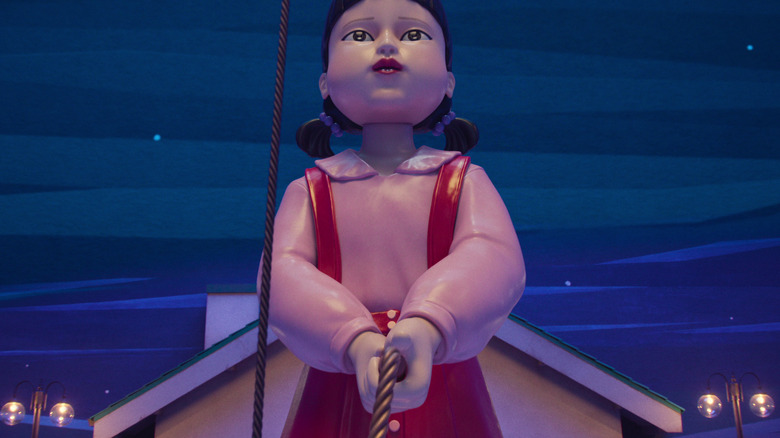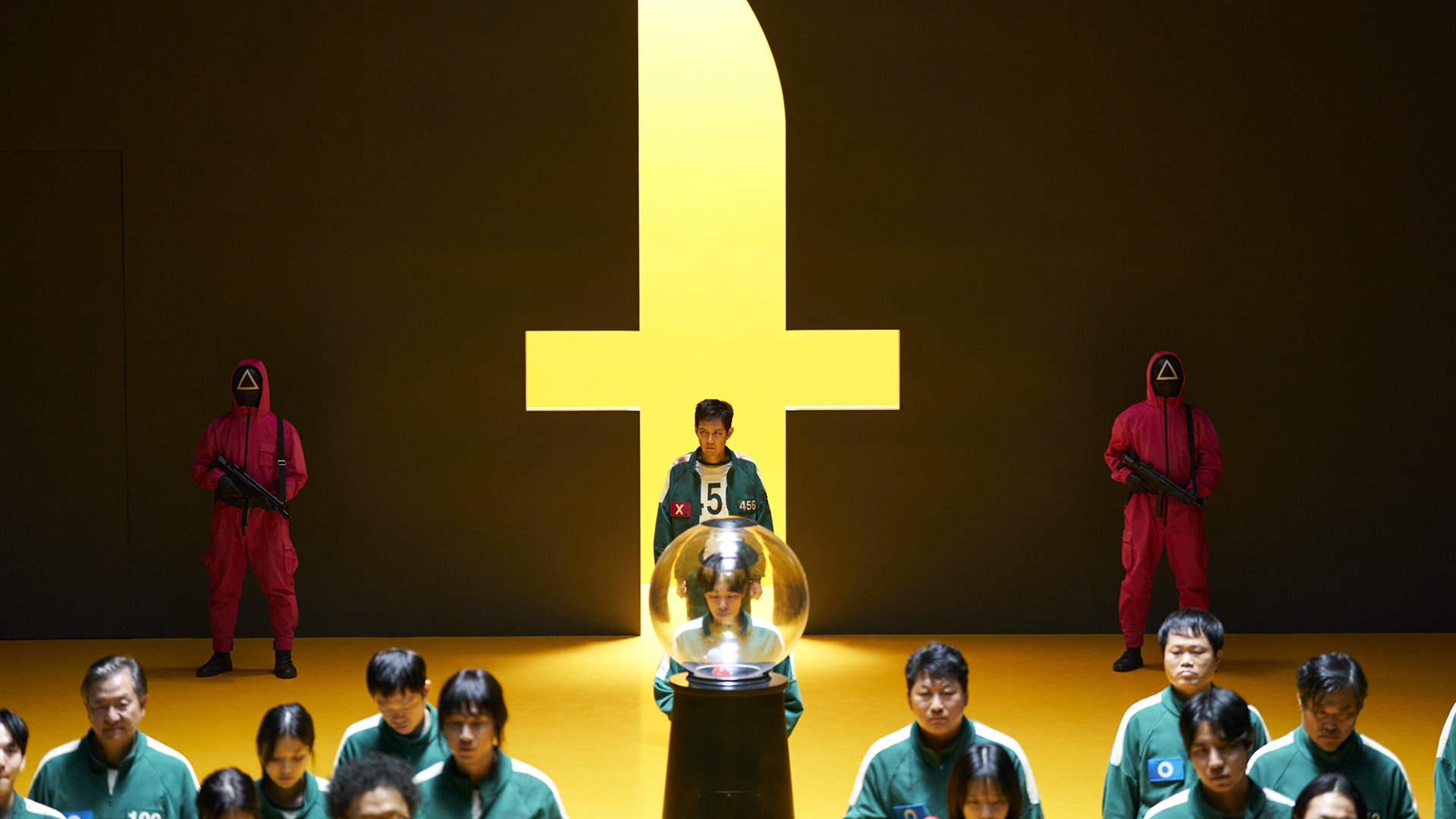Table of Contents
Season 3 Feels Like 2.0
“Squid Game” unfortunately reaches its inevitable conclusion with season 3, delivering a group of episodes that honestly feel more like an extension or “season 2.0” rather than a truly distinct, whole new installment deserving its own season number. This sense of continuation rather than evolution permeates the viewing experience.

It must be noted that the Netflix blockbuster from South Korea became incredibly big worldwide almost immediately after it premiered. The most presumable reason for this is that the series had a very emotional aspect that caught the viewers and made them feel very anxious about their personal debts. The series depicted the truth experienced by most people under the constant pressure of capitalism, and the series was very relatable to the audience. In this situation, viewers across the globe were taken by the themes that had been so touchy to their problems shown on the big screen.
Furthermore, while season 1 masterfully constructed a horrifying, high-stakes world where financially desperate contestants were forced to compete in lethal versions of children’s games for a life-changing cash prize, seasons 2 and now 3 exhibit a notably different, far more cynical atmosphere. They adopt an extra unpleasant, almost gleefully pessimistic attitude that relentlessly spells out what perhaps was always the show’s ultimate, underlying theme all along: when people are pushed to their absolute limits and survival is on the line, human nature reveals itself as inherently, inescapably horrible. The later seasons make this bleak worldview explicit and central.
Thematic Agreement, Narrative Disappointment
I must admit that on a theoretical level, I can’t really argue against the pessimistic statement; under extreme pressure, most people act very badly. Still, to have “Squid Game” go to such great lengths and provide us with three seasons full of violence and mental torture without offering an illuminating comment beyond a calm “Is that really possible? Okay, nothing is going well” gives me a very dull sensation of a dramatic plot conclusion. It leads to quite an unsatisfying conclusion, especially after the long journey.
Consequently, perhaps this bleak, nihilistic ending was indeed the only logical conclusion the show’s creators felt they could employ based on the dark path they established, effectively closing this specific chapter of the story. This finality holds until, of course, Netflix inevitably launches the already-teased American spin-off adaptation, potentially with acclaimed director David Fincher reported to be working behind-the-scenes, offering a new interpretation.
Gi-hun’s Season 2 Mission
Looking back specifically at season 2 (as covered in my earlier review), the narrative followed season 1 winner Seong Gi-hun, portrayed by Lee Jung-jae, as he shockingly chose to return to the very nightmarish games he had previously survived and won. He did this for two interconnected, deeply personal reasons. First, due to a personal need for justice and by ethical principles, he focused on downgrading the game’s horrors by working on the operations. Second, it was his more philosophical idea- he wanted to prove unambiguously to the enigmatic, and masked Front Man (played by Lee Byung-hun), the heartless leaders of the game, that even though people can be extremely embarrassing and cruel they do have a kind and good-hearted nature which can win in the end. This belief in the basic kindness of humanity became his incentive.
Surprisingly, even after he had been through the unspeakable nightmares of the games and had seen the most profound humanness of the people, he was of the strong opinion that Gi-hun would still be able to keep his head above and make the right choice under the circumstances. His hope was what brought him back. Nevertheless, the harsh reality with which he was confronted after he had made it into the games again ruthlessly let its spikes of despair into his soul and did not leave much space for the gleam of his hopeful convictions against the Front Man’s cynical worldview. The third season further focuses on the aftermath of this weakened belief.
Immediate Continuation of High-Stakes Conflict
Season 3 began narrating from the very moment when the last episode of Season 2 ended shockingly. The audience, therefore, was immediately thrown right back into the midst of the storm of tension and drama. Moreover, the initial scenes take viewers a step back; it was quite crafty, cleverly replaying the last scene that was seen in the entrance to the last broadcast of Season 2. However, this revisit isn’t just repetition; instead, it masterfully provides crucial new context and reveals previously unseen details about that pivotal moment. Therefore, the transition between seasons feels utterly seamless and immediate.
Escalating Threats and Moral Challenges
Indeed, Seasons 2 and the majority of Squid Game Season 3 are dedicated to thoroughly disproving Gi-hun’s initial hopeful belief in human decency within the game. While the first season featured dangerous players, the subsequent seasons significantly amplify this grim reality. Specifically, Gi-hun now finds himself surrounded by a wave of truly monstrous individuals who emerge among the new contestants. These players demonstrate a terrifying willingness to shed enormous amounts of blood purely for the chance at the colossal cash prize.
Admittedly, Gi-hun does encounter a few trustworthy allies along the way, such as the transgender player Hyun-ju (Park Sung-hoon), the pregnant Jun-hee (Jo Yuri), and the determined mother-son duo Geum-ja (Kang Ae-sim) and Yong-sik (Yang Dong-geun). Nevertheless, the overwhelming majority of the fresh participants frequently exhibit deeply psychotic behavior. As a result, Gi-hun’s core faith in human goodness faces relentless, brutal testing at virtually every single stage of the continuing nightmare.
Rebellion’s Aftermath and Deadly Consequences
The last scene of Season 2 was where Gi-hun was successful in inciting the rest of the players into launching a violent rebellion against the masked, well-armed guards who were the games’ managing authorities. But unfortunately, this uprising resulted in a tragic defeat as Gi-hun was deceived by Player 001 who was, in fact, the Front Man in disguise. Thus, the season finished up in a very gory situation due to the killings of many players, and the resistance was also brutally conquered with the exposure of its consequences. Hence, it is only natural that Season 3 begins at the same terribly depressing point.
The players who made it alive through the brutal killing game face a new vote to decide whether to go on with the games of death or quit playing. Just as before, despite the overwhelming evidence of the potential threat to their own lives, they are mostly in favor of staying. Although logically this is an unfortunate decision as it does not ensure survival, the narrative requires the continuation of the game.
On the other hand, Gi-hun is now entirely different and has become someone who is most visibly affected by his losses and the death of an enormous number of people. Through this, the organizers roll out a series of horrifying new games for the already traumatized survivors, the first of which is a particularly scary jump rope game between two huge and fierce robot figures. Finally, there are the main, disturbing questions: who will survive the extreme pressures, and what will be the unbearable physical and mental burdens of these people?
Jun-ho’s Stagnant Pursuit
On the other hand, Jun-ho, who had a reputation as a corrupt police officer (Wi Ha-joon), whom the viewers got to know as the brother of the mysterious Front Man, is sailing the sea alone, desperately trying to find the remote island of the deadly games. Unfortunately, the story/plot did not energize the drama and lacked the compelling element, which made it even worse in Season 2. Regrettably, this feeling of lifelessness persists strongly into Squid Game Season 3 as well. Although his quest eventually leads him towards something significant, the payoff feels underwhelming. Sort of. Consequently, as all the show’s various narrative threads gradually wrap up in one way or another, a distinct impression begins to solidify that the series itself is simply going through familiar motions without genuine inspiration.
Creator Fatigue Evident On Screen

According to the “Squid Game” writer, creator, and director Hwang Dong-hyuk, he was vocally adamant about not wanting to make the subsequent seasons, since he got little profit despite the series being a huge success. Nevertheless, the first season was such a hit that it spread its way around the globe, that Netflix bowed to the demand for continuation of the story. It is obvious that Hwang did not consciously belittle his own work, but one is still able to sense his tiredness all over in Squid Game Season 3. Subsequently, you can genuinely sense a lack of passionate drive behind the production; it often feels as if “Squid Game” itself is sighing heavily and reluctantly asking, “Shall we just finish this now?”
Visuals Versus Waning Engagement
Undeniably, these final episodes still showcase plenty of truly impressive production design elements. The climax is really thrilling sometimes, with those twists and turns where you can only edge your seat. To tell the truth, the final scene of the season finale would be a hot topic among fans, and it’s for sure going to push fans into having some serious discussion (to be honest, I almost spoke out loud to my computer screen). Nevertheless, as “Squid Game” Season 3 steadily progressed through its concluding hours, my own personal interest level began to noticeably slip. Compounding this problem, the return of those ultra-wealthy, masked VIP spectators certainly doesn’t help matters; they reappear only to spout more of their consistently horrendous and cringe-inducing dialogue. Therefore, while the visual spectacle remains, the captivating tension significantly diminishes.
Obviously, I don’t think they will stop at anything to make the most of the “Squid Game” phenomenon or at least keep its flame alive in one way or another, like through spin-offs or related content. However, in regard to the main line of the story having Gi-hun as the focus point and the grotesque game as its backdrop, it is now evident that it has to be rested with dignity for good, most likely if not forever. The creative energy feels depleted, and the narrative has run its natural course. Game over.




